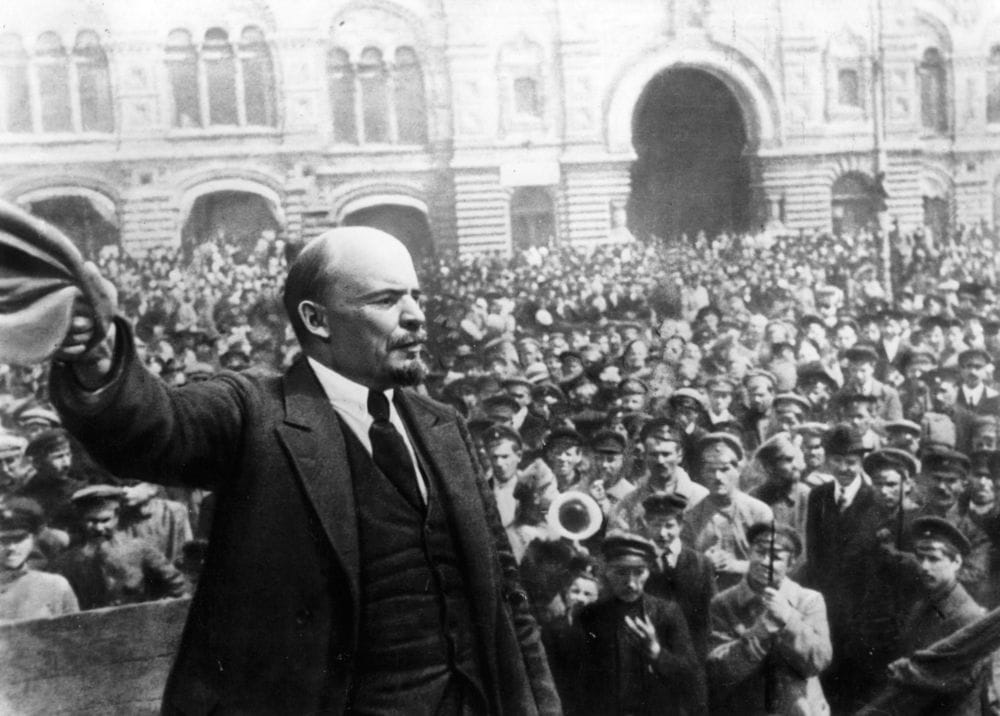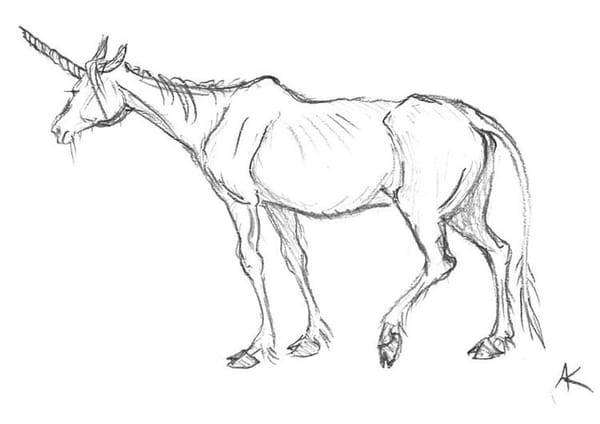Lenin’s Imperialism and 700 years of Finance
Christy Kelly takes a look at 700 years of Finance

Last week I gave a fairly standard summary on the start of the financial crisis, and a Guardian, perhaps Huffington Post, summary of subsequent economic ‘events’. This was to help put the findings of a recent economic research group into a little context and provide some background to my criticism of Tory policy. However, there are, I believe, severe limitations with the standard summary, and this was probably reflected in some slight differences in emphasis which might have stood out to any of my sharp eyed readers, assuming of course I have any readers. For instance, I make very little of the role of the complexity of the new financial products (specifically the CDOs and CDSs) and don’t mention the massive amounts of information required to understand a single trade. I don’t stay long on the lack of transparency in the CDS market, and I’m not sure I mention the potential conflict of interest between the banks and the rating agencies. This is not because I believe these points are false or irrelevant, but in my mind they are second-order problems.
The main problem of the summary becomes apparent when you extract the recommendations that suggest themselves from the account given. Namely, Keynesian fiscal stimulus to improve bank liquidity with regulatory practices ensuring that this stimulus makes its way to promoting the ‘real’ economy such as manufactures through investment in small-to-mid-scale business, and not go towards the – presumably – ‘fake’ economy of derivative markets and financial speculation. In a word, we want a capitalism of small-shopkeepers and neighbourly ‘Building and Loans Associations’, something like the one run by George Bailey in Frank Capra’s Christmas classic, It’s a Wonderful Life.
Heart-warming though it is to see perennial failure James Stewart resign his hopes of seeing the world and accept American small-town provincialism, economic policy probably deserves a little more thought. Firstly, the division between the ‘real’ and ‘fake’ economy strikes me as highly arbitrary while dismissals of futures trading as mere gambling strikes me as downright inconsistent, assuming that the commentator is not some brand of anti-capitalist. Wage-labour for instance, to take just one – central – example of a Capitalist practice, clearly relies on an expectation of future returns – the aggregate of which will be surplus to expenses – otherwise the transition from slave to wage-labour would never have taken place. ‘Betting on the future’ is, I believe, a fundamental feature of capitalist value-creation and as such, a distinction between ‘real’ and ‘false’ economies does nothing but obscure the underlying problem.
This is not the place to enter a detailed discussion of theories of value. But even leaving this discussion aside, taking issue with the division between the ‘real’ economy and financial speculation is not mere pedantry. I believe this division reflects an insufficient understanding of the role of finance in the world economy today, since finance is of course the main site of the ‘false’ economy. Closely linked to this problem is the crucial drawback of the Keynesian solution of full employment: in a word - overproduction. Within the next few weeks I shall probably discuss the dynamics of overproduction in some detail, especially in its relationship to finance and the linked phenomenon of ‘over accumulation’. However, I would first like to put discussions of finance into some historical perspective.
Probably the most famous Marxist text after the Communist Manifesto and Capital, is Lenin’s pamphlet Imperialism: The Highest Stage of Capitalism. While we should note for honesty’s sake that the pamphlet was originally sub-titled ‘Latest’ and not ‘Highest’, it is probably fair to say that the change in sub-title reflected Lenin’s wishes and should not be made too much of. In it, Lenin draws on (then) recent economic analyses by principled Ricardian J A Hobson, Hilferding, social-democratic politician and first-finance Minister of the Weimar republic, to – in his own words – ‘[prove] that the war of 1914-18 was imperialist (that is, an annexationist, predatory, war of plunder) on the part of both sides; it was a war for the division of the world, for the partition and repartition of colonies, ‘spheres of influence’ of finance capital, etc.’
Lenin argues, following Marx, that unregulated free-trade encourages the concentration of capital and production in fewer and fewer hands. He quotes German and American statistics to this effect. This concentration of capital in the hands of the banks led to the creation of a financial oligarchy, and thence to transition in the ‘stage’ of capitalism from ‘free-trade’ to monopoly capitalism. Part of this transition involves the re-emergence of widespread protectionist policies, in turn encouraging the export of capital over the export of goods. In search of ever greater profits, the new financial cartels and capitalist combines are forced to ‘divide the world up’ between themselves, putting pressure on territorial expansion. After the African cake had been finally carved up, the European powers were sent careering into the Great War.
The pamphlet is famous for several reasons. For one thing it is a pedagogic triumph, making an ambitious argument about the course of recent history in a mere hundred pages. Also, the political success of the Bolsheviks in 1917 gave Lenin’s works a global scope, in probably undue proportion to his actual academic talent. Finally, the pamphlet is a reasonably persuasive text which gave a theoretical explanation of Imperialism divorced from the obscene complacency which marks the writings of many European commentators, an obscenity which has seen a marked revival recently. This has meant that third-world groups with diverse ideological tendencies, from bourgeois nationalist to religious fundamentalist have somehow absorbed the Leninist terminology. Though the actual Soviet record in the third-world is certainly disappointing to say the least, Marxism provided one of the first theoretical schemas wherein anti-Colonial sentiment could be properly articulated.
This being said, it cannot be denied that the pamphlet is seriously flawed. I will leave all commentary on the provenance of WWI, and merely remark that a more sophisticated analysis is required. Imperialism certainly fails to consider – in Arno Mayer’s phrase – ‘the persistence of the old regime’. Meanwhile, in the light of the massive explosion of finance in the century since Lenin wrote his pamphlet, it is hard to shake the impression that what he saw was at best a portent of things to come. Considering the ‘State Capitalism’ of FDR’s USA or Japan, Lenin’s view that monopoly capitalism only needed the external formal trappings of capitalism to be thrown off to become socialism was probably a little previous.
However, following Giovanni Arrighi’s magisterial The Long Twentieth Century, we see that the biggest problem comes from Lenin’s view that finance capital is something radically new. Following Braudel, Arrighi demonstrates that this is not the case. Arrighi suggests that there have been four periods of ‘systemic accumulation’ in the history of capitalism, whereby the extent and complexity of the world market is drastically increased, all taking place under the hegemonic influence of a territorial power; first the Italian city states, with the Genoese financial classes attaching themselves to the expansionist Iberian states, then the Dutch, British and Americans in turn. Each time, Arrighi notes that the emergence of a dominant financial class signifies the ‘autumn’ of the particular regime of systemic accumulation, and that within a period of approximately 50 years there is a ‘terminal crisis’ which leads to a transition in the economic and geopolitical centre of world gravity.
The initial ‘financialisation’ occurs because over-competition reduces profitability. As Arrighi explains in an interview with David Harvey, ‘when competition intensifies, investment in the material economy becomes increasingly risky, and therefore the liquidity preference of accumulators is accentuated, which, in turn, creates the supply conditions of the financial expansion.’ This, incidentally, is not so far of Lenin’s own account for the financial expansion at the close of the 19th century. However, what Lenin does not see is ironically Marx’s idea that ‘the autumn of a particular state, experiencing financial expansion, is also the springtime for another location: surpluses that accumulate in Venice go to Holland; those that accumulate in Holland then go to Britain; and those that accumulate in Britain go to the United States.’ On this note Arrighi suggested in 1994 that sometime within the next 25 years or so there would be an eclipsing of the US as global hegemon. With the subsequent rise of China and the collapse of 2008, such remarks strike me as awfully prescient. However, there are perhaps some further dynamics in the process of financialisation that I shall consider in a subsequent article.






